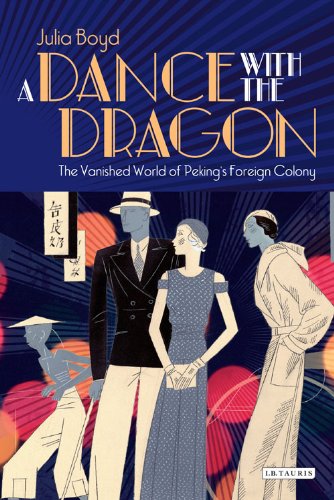Why a Booktrail?
1900s – A fascinating look at the the expat community in Peking between the end of the Ching Dynasty and Mao’s communist revolution

1900s – A fascinating look at the the expat community in Peking between the end of the Ching Dynasty and Mao’s communist revolution
Peking’s foreign community in the early 20th century was as exotic as the city itself. It was known to be a magnet for a whole range of wild and diverse characters such as Peter Fleming, Wallis Simpson amongst others. A city which both captivated and horrified those in came here in equal measure.
Deep within the heart of the city, in the legation quarter, this was the expat enclave with a wild party lifestyle, a world within a world. Outside its walls reality rules but within, anything goes.
But the world outside was changing and the walls of their inner sanctuary were coming down..
Peking’s expat community was one of a kind.
Through extensive use of unpublished diaries and letters, Julia Boyd reveals how the characters of this community saw everyday life and events, lived a private and sheltered life yet had one of the most fascinating viewpoints from which to see the city and country as it changed.
An eclectic and intriguing mix of people from all walks of life were those who lived in the cocoon that was the legation quarter. They were both living and surviving Peking as the Qing Dynasty came to a close and the Communist Revolution of 1949 arrived on the world stage.
From the time of the Boxer rebellion, the treatment of foreign nationals after Pearl Harbour and the start of Mao’s revolution, This is the story of the expat bubble, where foreigners isolated themselves from outside events and lived a life of hedonism and gilded youth.
Edmund Backhouse was one of the most fascinating characters of the period. he was a somewhat strange British aristocrat, China scholar who lived in Peking for a long time and is said to have carried out elaborate literary hoaxes as well a engaging in several sexual encounters with both sexes.
‘…if much of the architecture of the city has changed beyond recognition, so too has that image of China once perpetuated by the expatriates who are the subject of this book and whose insensitivity and ignorance were to leave such a scar.
1910. 1970s :In the middle of a severe storm two sisters rescue a mysterious man from a shipwreck.
Read more